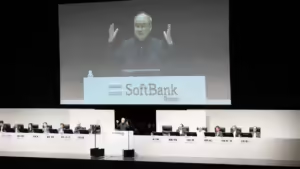Por Contxto
February 15, 2024
OpenAI, bolstered by Microsoft, is developing a web search product that positions the AI research company in direct competition with Google. This initiative, which integrates Bing’s capabilities, represents a significant step in the evolving landscape of search engines, emphasizing the growing role of artificial intelligence in shaping online search experiences.
Microsoft CEO Satya Nadella’s vision to integrate OpenAI’s artificial intelligence into Bing aimed to disrupt Google’s stronghold on the search market. Despite this ambition, Google’s dominance remained largely unaffected. The details surrounding whether OpenAI’s search service will operate independently from ChatGPT, its popular chatbot utilizing Bing’s web index, remain unclear. However, the potential for a standalone search service suggests an effort to enhance response times and efficiency, addressing ChatGPT’s limitations in speed due to its multifunctional capabilities.
OpenAI’s venture into the search domain intensifies its competition with Google, which has been accelerating its efforts in conversational AI to match OpenAI’s advancements. The rivalry extends to talent acquisition, with OpenAI drawing on former Google employees’ expertise in machine learning and AI to develop ChatGPT.
The search market has seen other AI startups, such as Perplexity, enter the fray with the ambition to disrupt traditional search paradigms. Led by ex-OpenAI researcher Aravind Srinivas, Perplexity aims to deliver concise, AI-generated responses sourced from across the web, utilizing both OpenAI’s large language models and its proprietary technology.
Perplexity’s recent valuation at $520 million and its $8 million in annual recurring revenue highlight the commercial potential of AI-driven search solutions. Comparatively, ChatGPT’s projected revenue of over $1.6 billion from subscriptions and business services underscores the significant financial stakes in AI-enhanced search and conversational platforms.
Despite Microsoft’s efforts to leverage OpenAI’s technology to boost Bing’s market share—a move that momentarily impacted Google’s stock—Bing’s position in the search market remains largely unchanged. Meanwhile, OpenAI’s ChatGPT has seen consistent growth, raising questions about the monetization strategy for OpenAI’s forthcoming search product. Microsoft’s advertising revenue, heavily reliant on Bing, contrasts with Google’s substantial search ad earnings, highlighting the competitive dynamics at play.
Google’s cautious approach to integrating AI-generated answers into search results and its subscription-based model for accessing its LLM, Gemini, reflect the company’s strategy in navigating the AI transition. Google CEO Sundar Pichai’s comments suggest an openness to the transformative potential of conversational AI across the industry, acknowledging both challenges and opportunities for incumbents and newcomers alike.
As OpenAI gears up to introduce new offerings, including task-automating “agents,” the company’s foray into the search engine market signifies a pivotal moment in the quest to redefine how users access and interact with information online. The outcome of this competition could reshape the search landscape, offering new alternatives and potentially altering the dominance of established players.

Por Stiven Cartagena
December 4, 2025
Por Contxto
July 23, 2024

Por Contxto
June 24, 2024